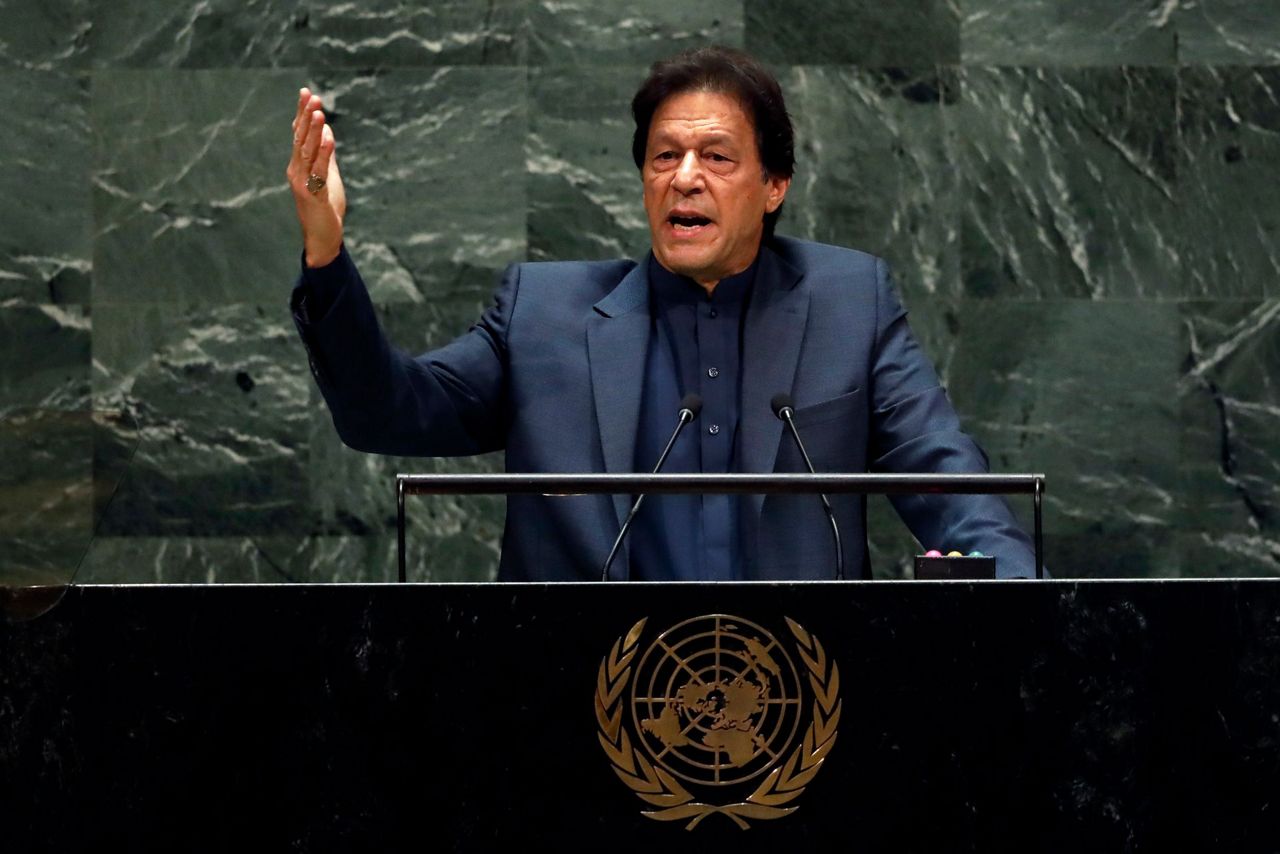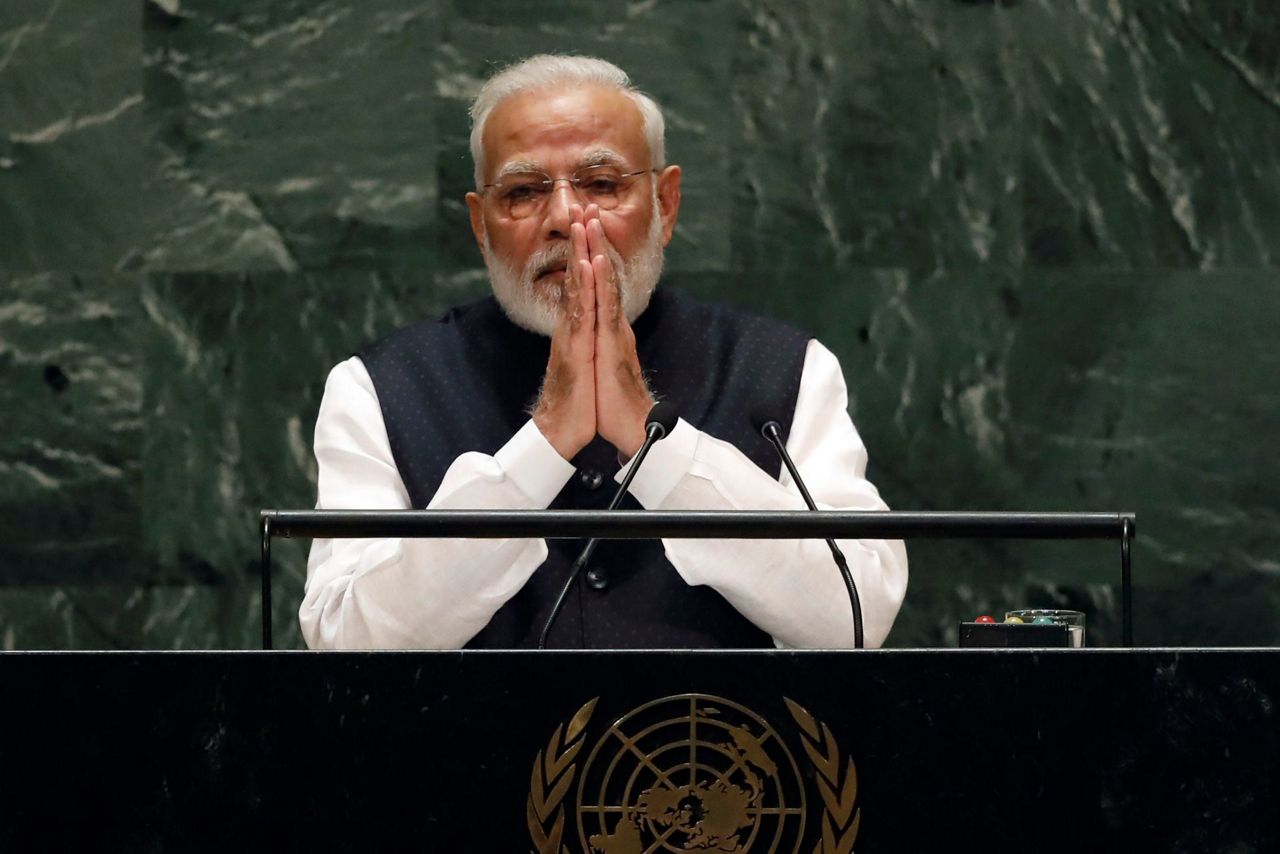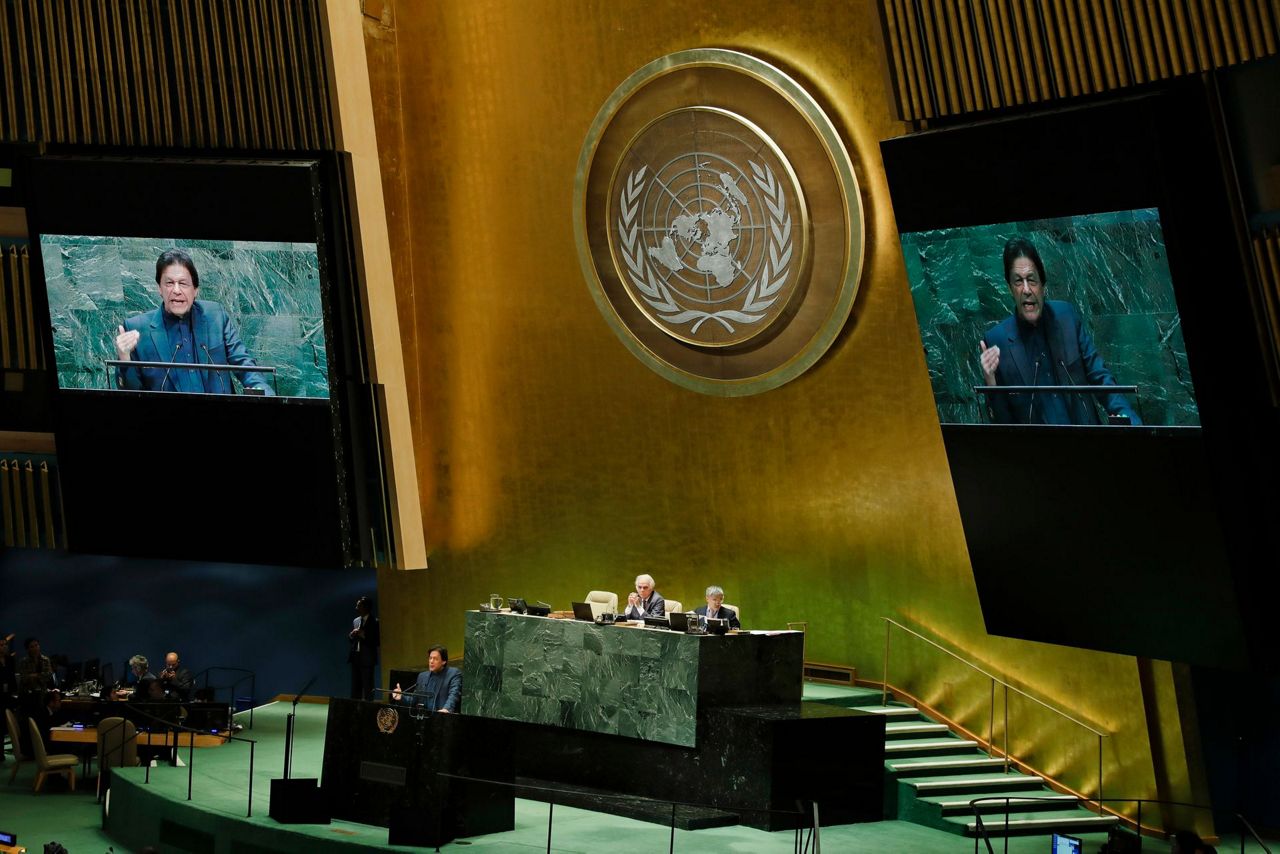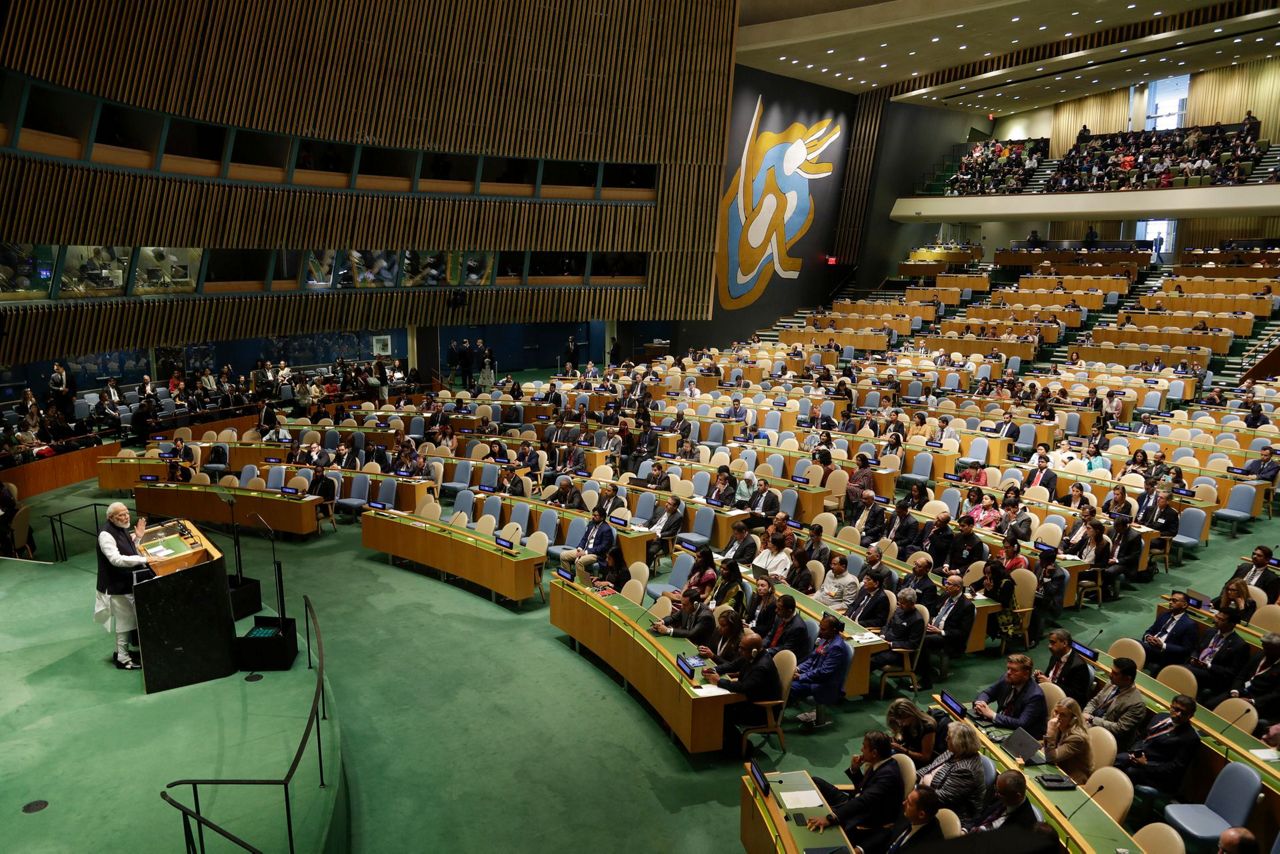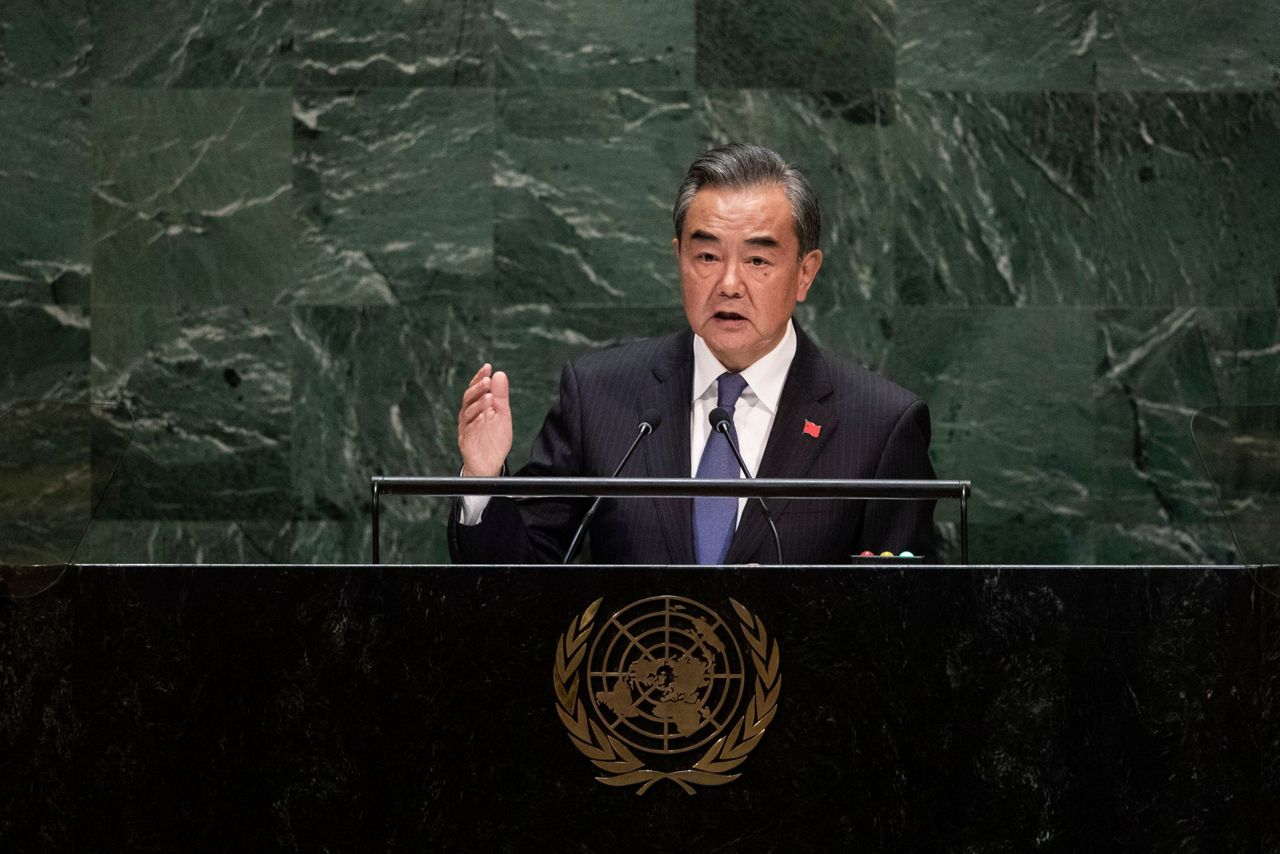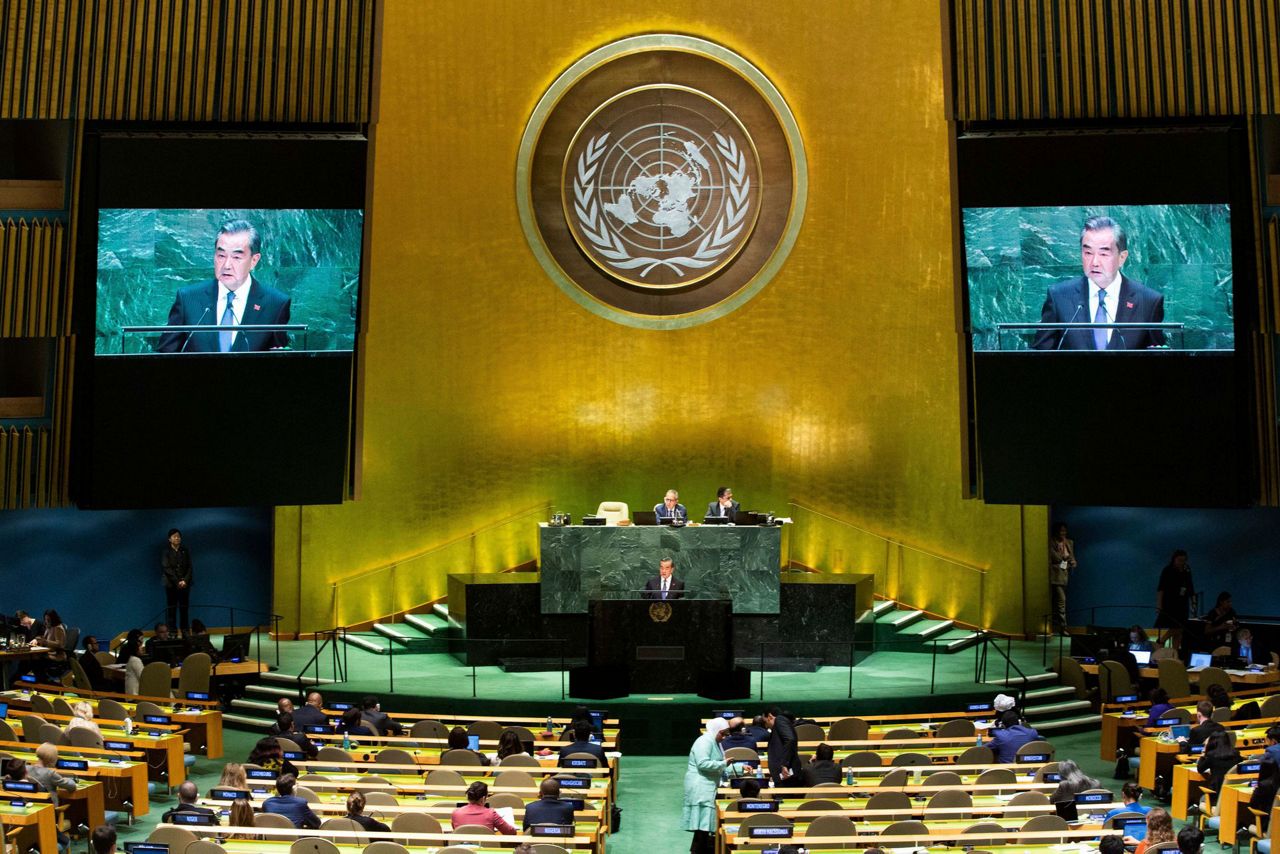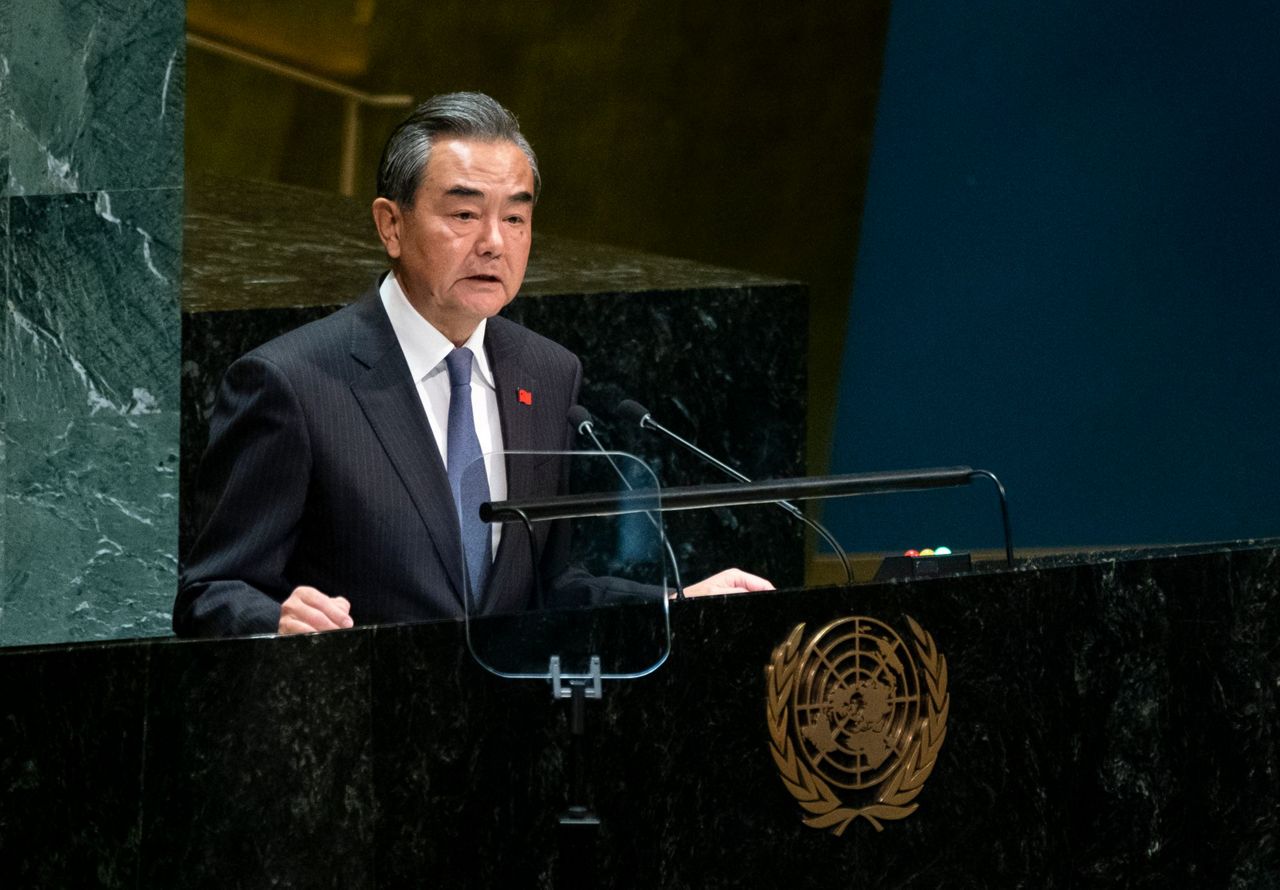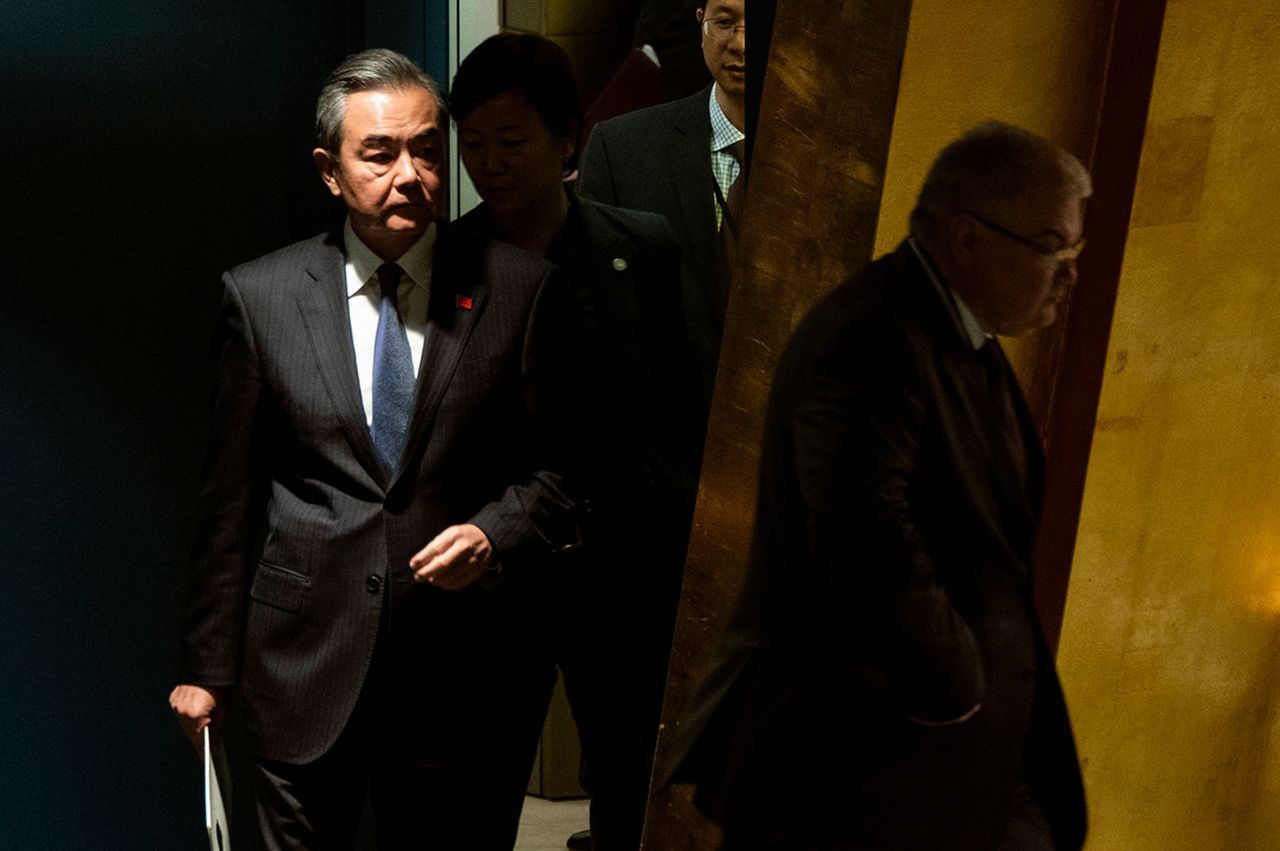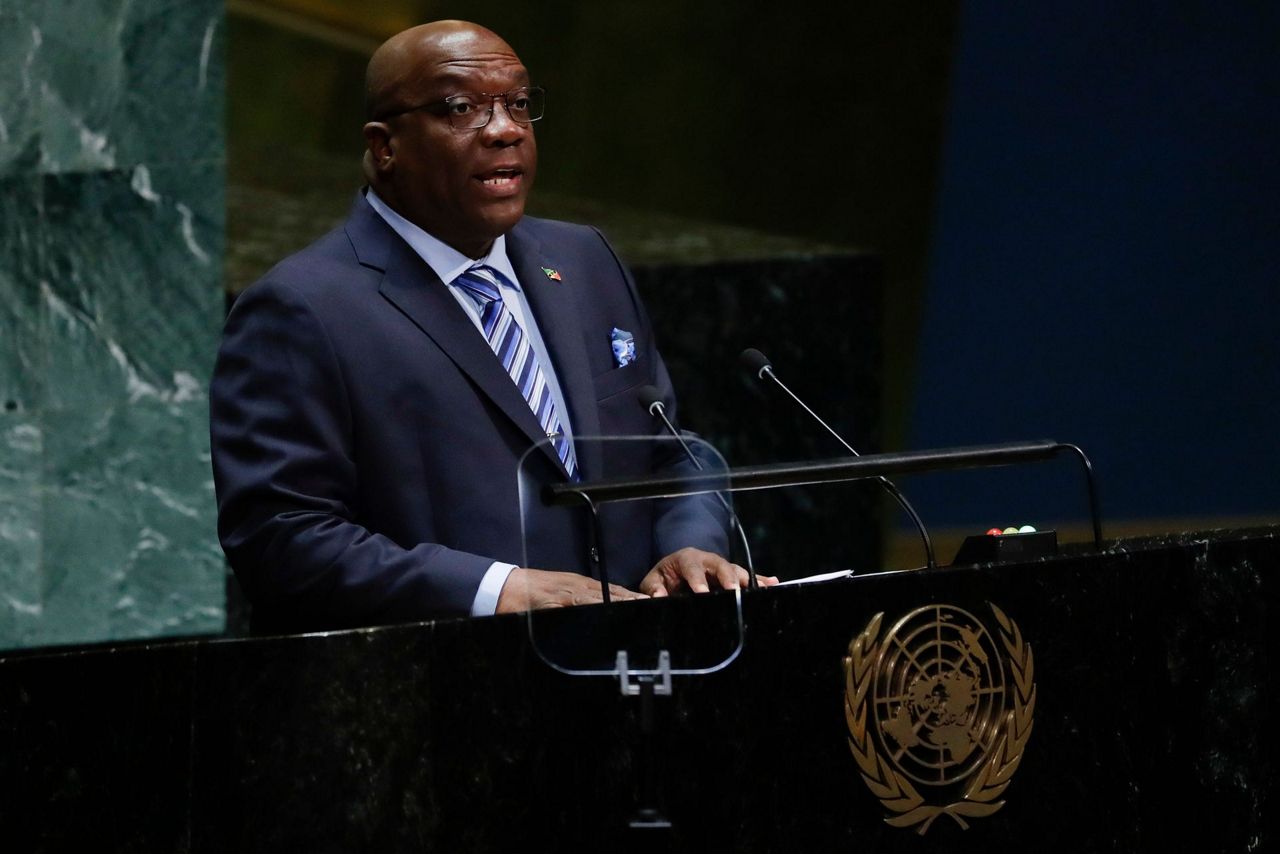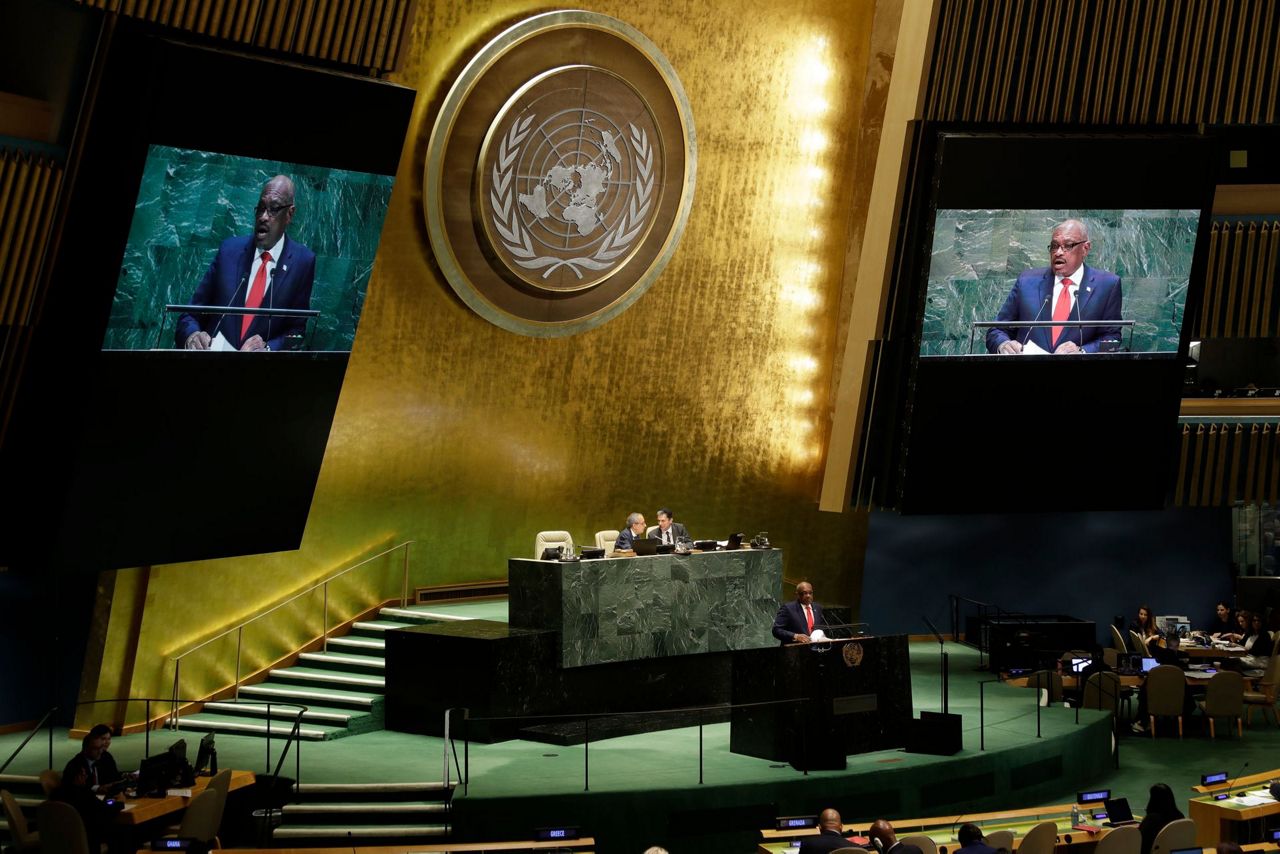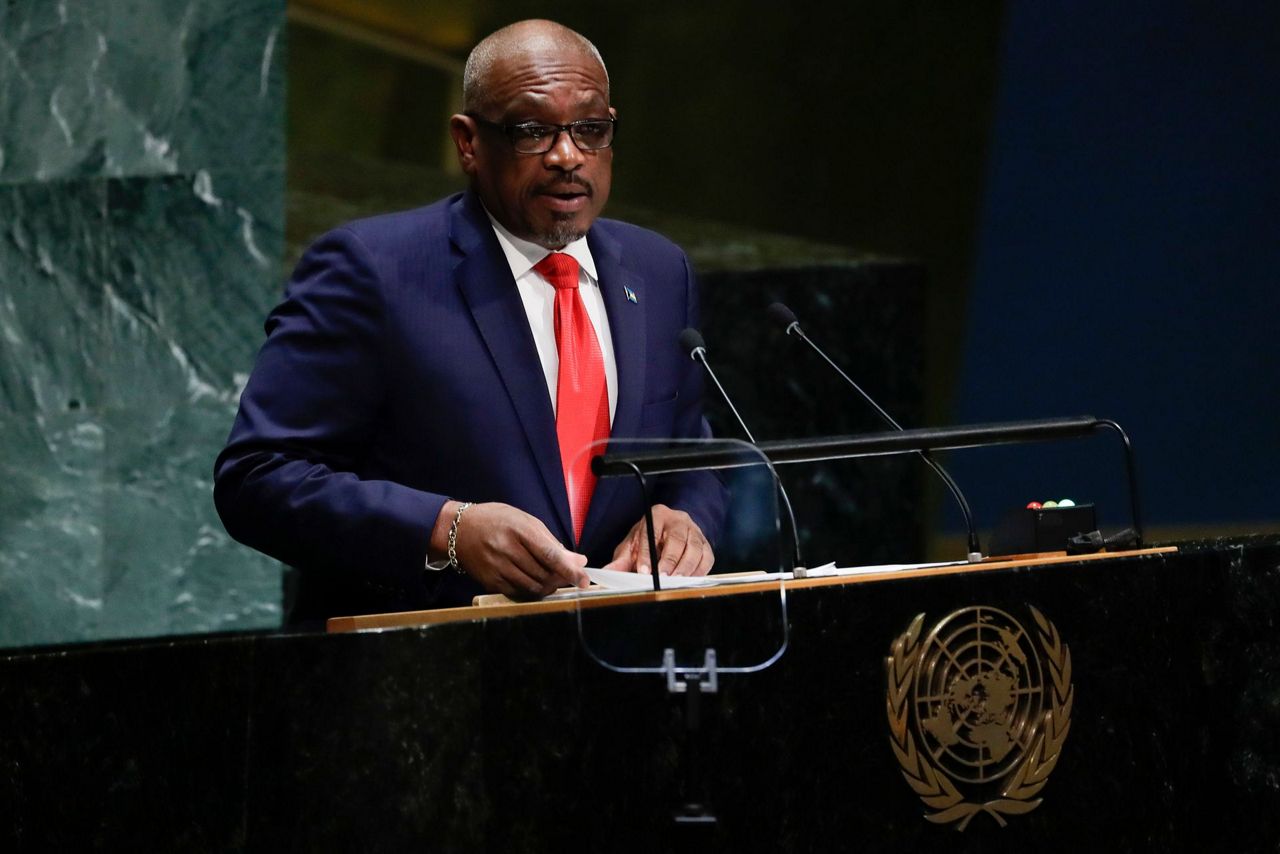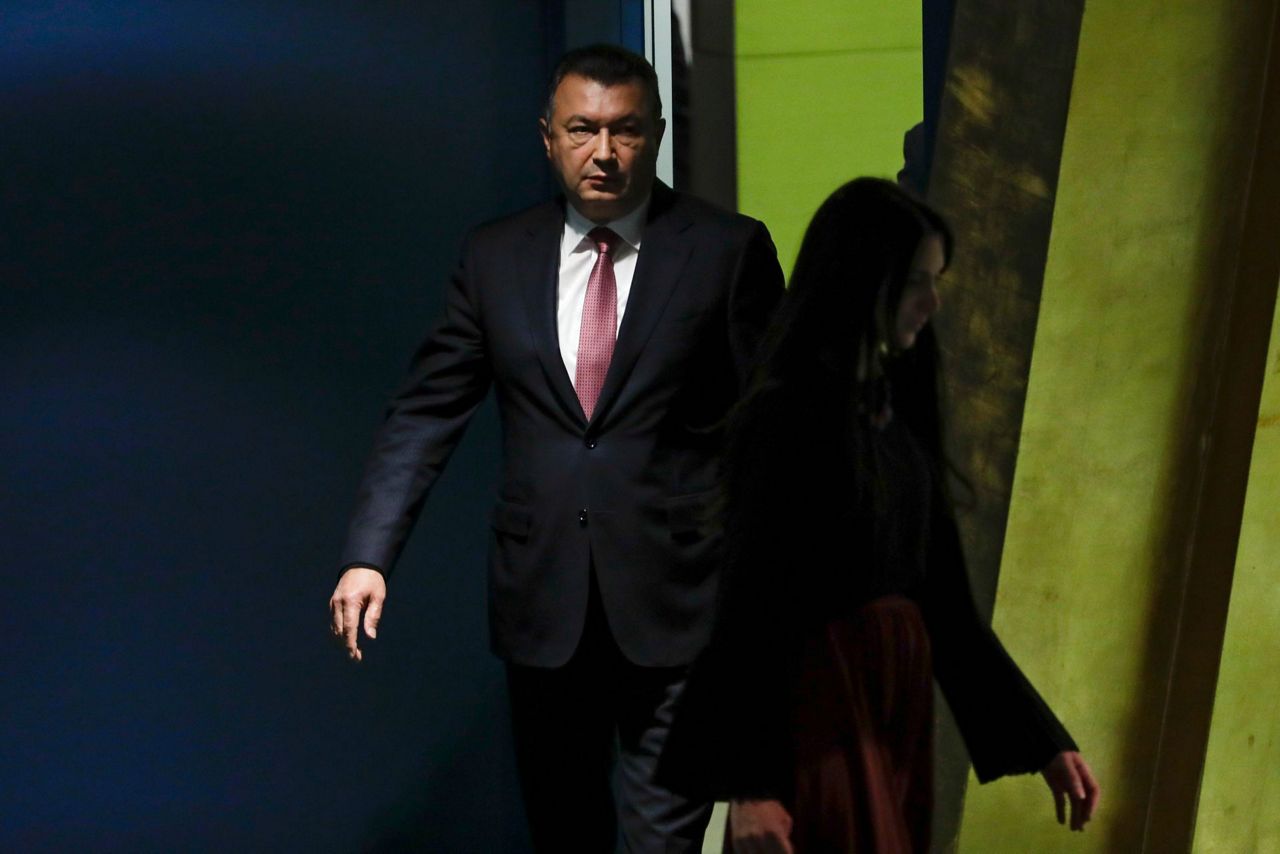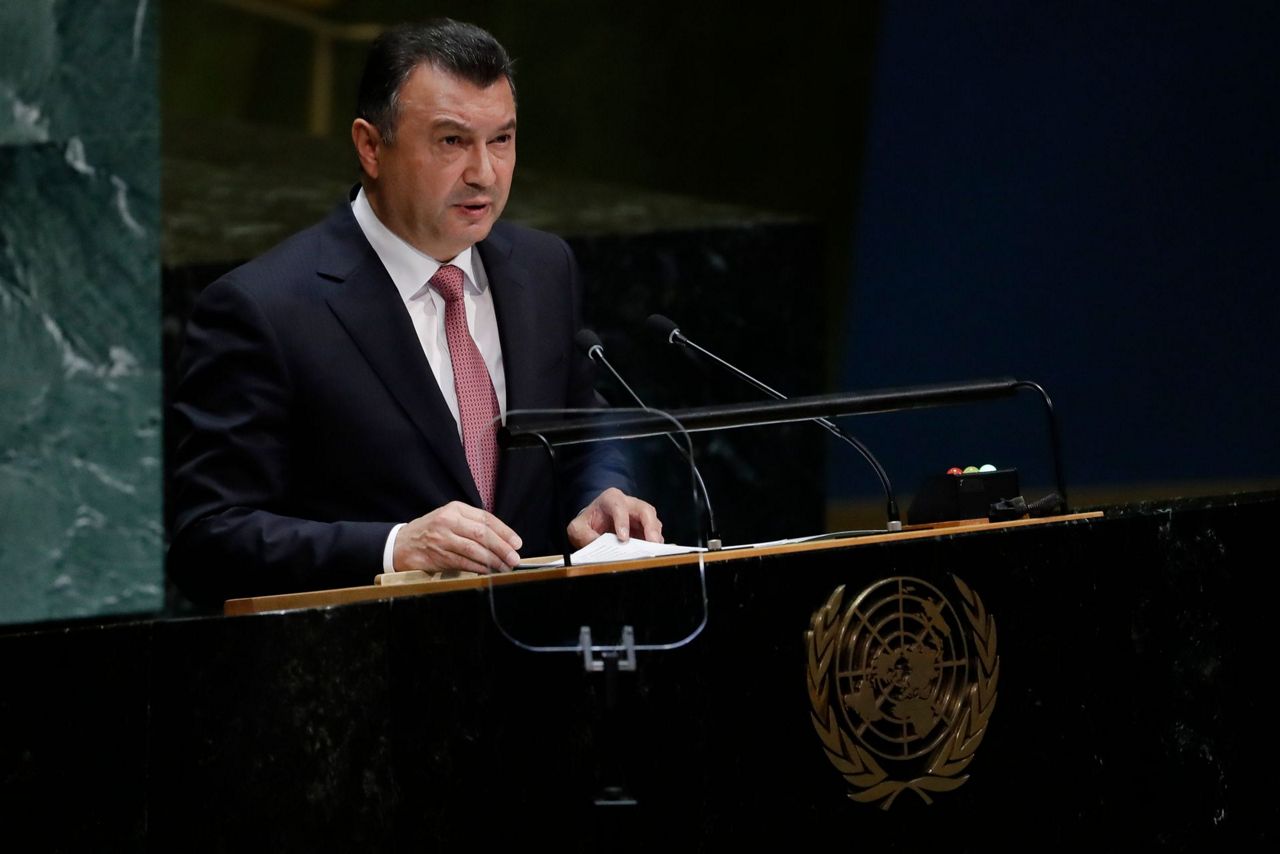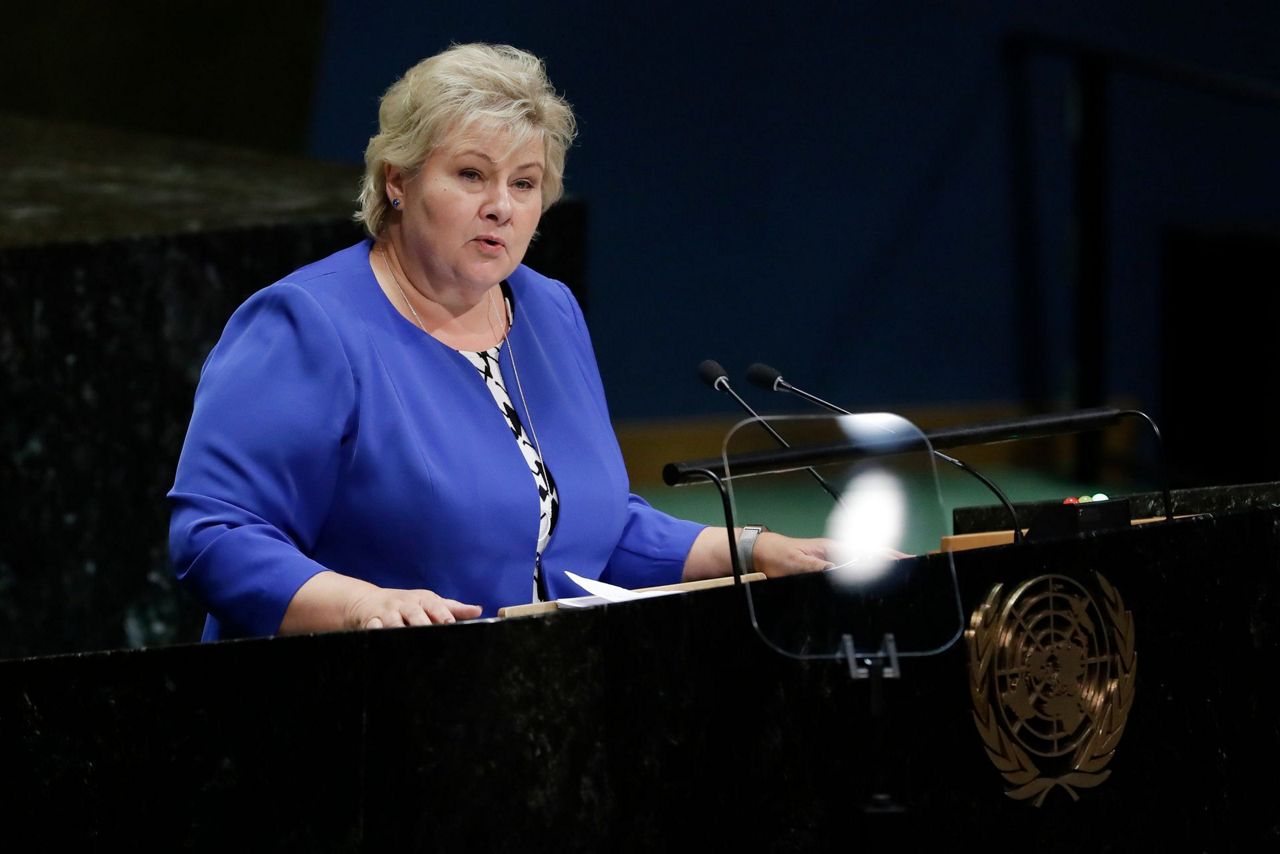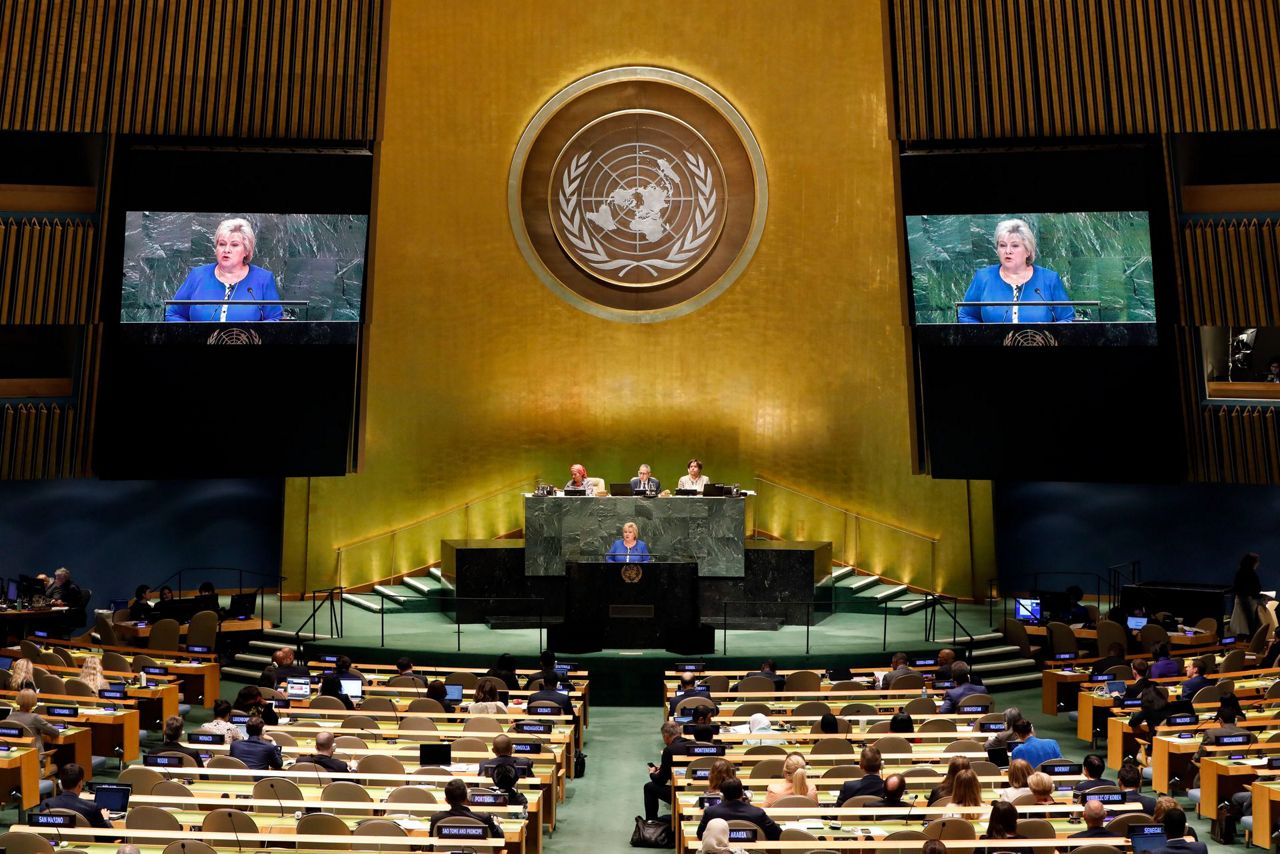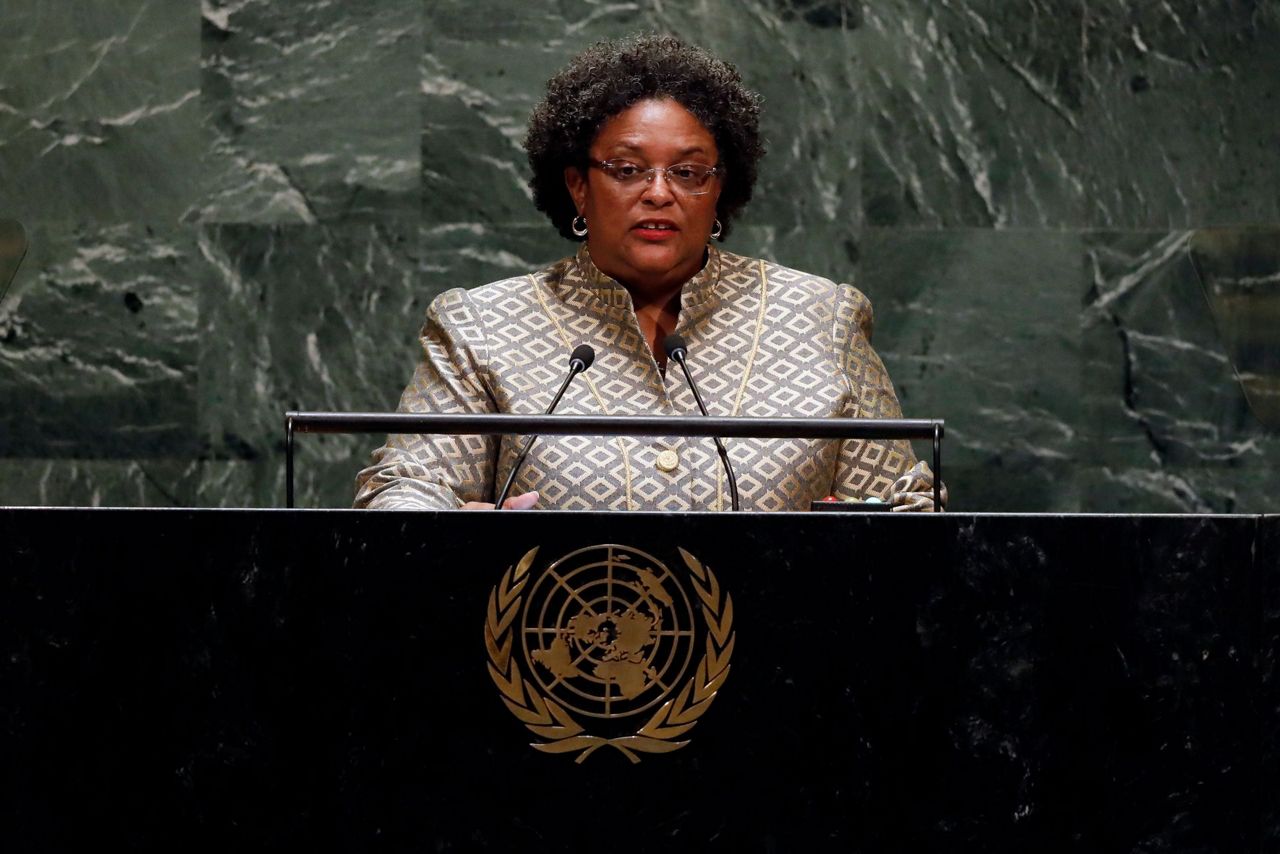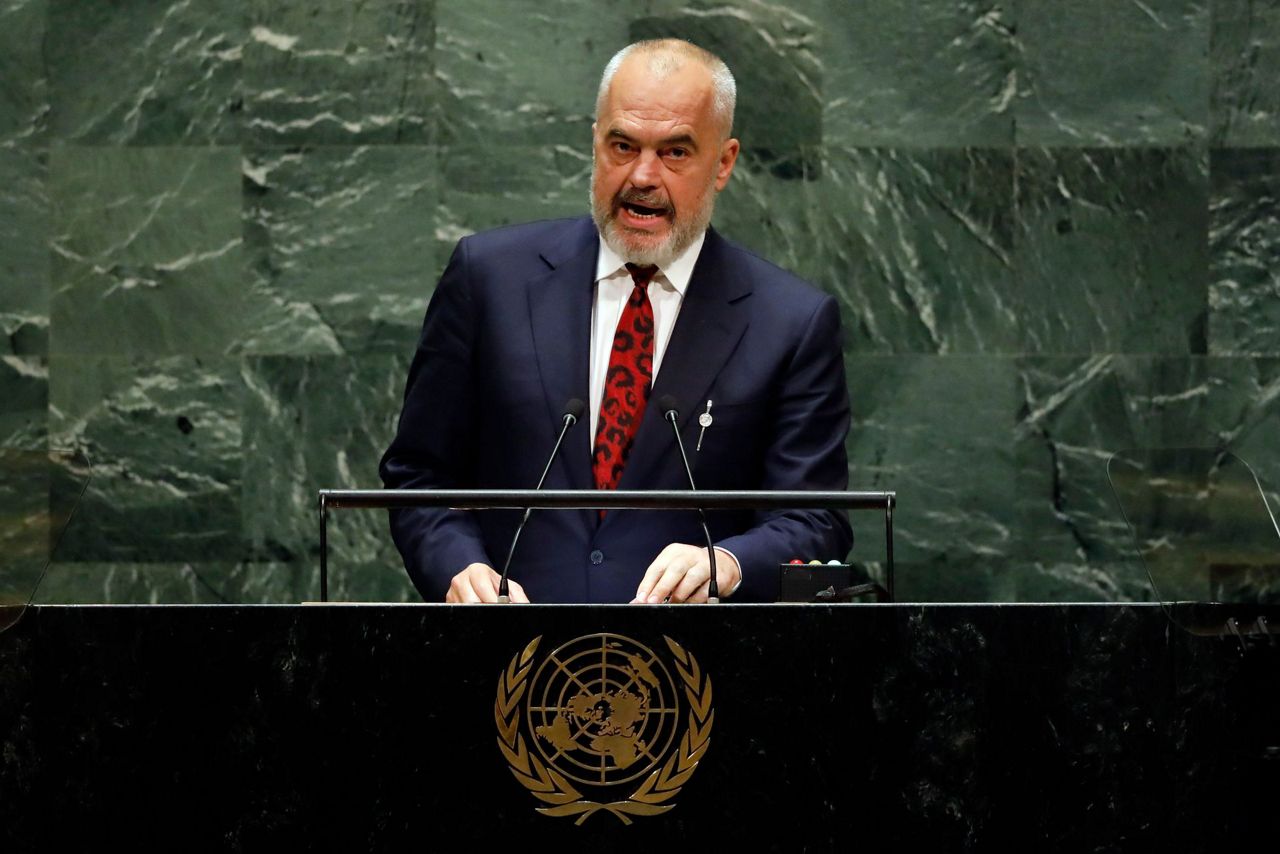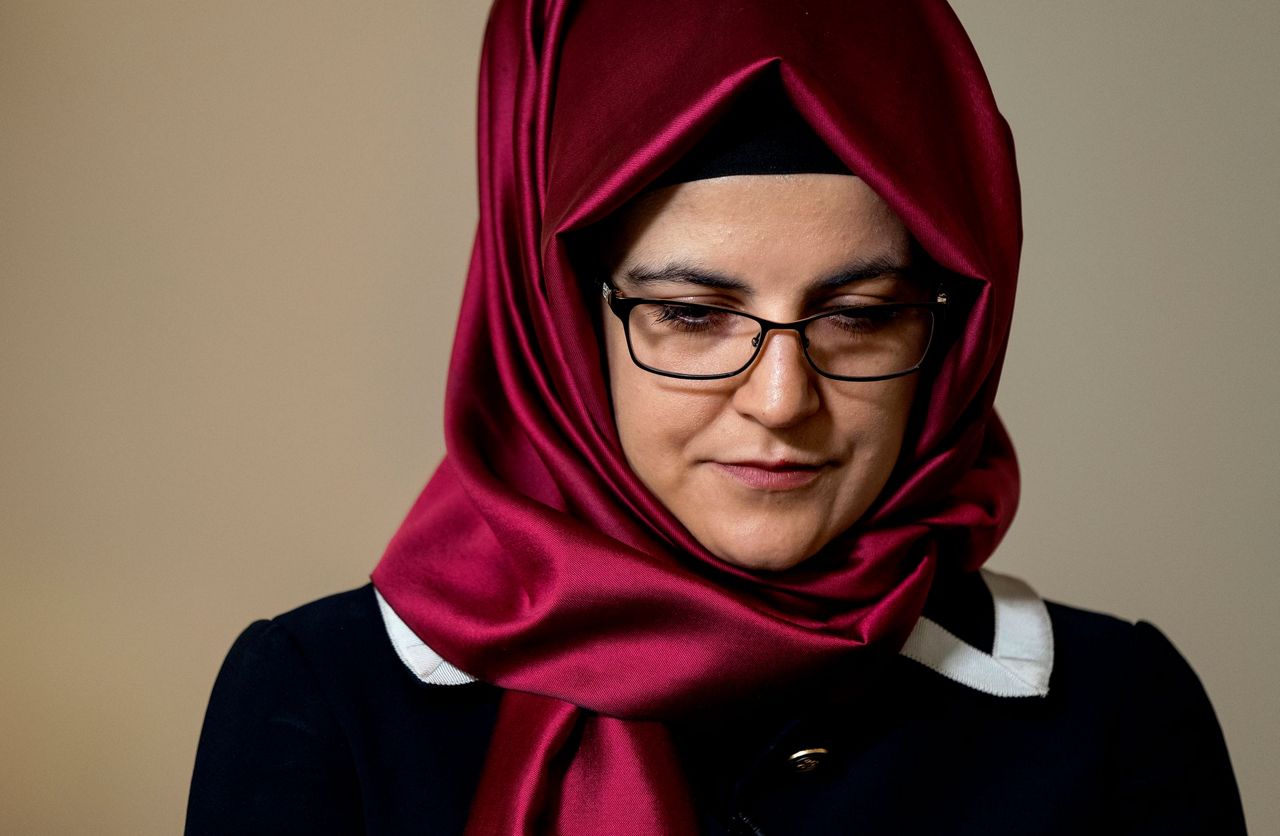UNITED NATIONS (AP) — Pakistan and India sparred over Kashmir, Russia chided the West and said its influence in world affairs was diminishing and China's top diplomat warned that unilateralism and protectionism "are posing major threats to the international order" — a veiled reference to its ongoing tariff war with the United States.
Nations at odds with each other didn't shy away from taking gibes Friday as their leaders took to the podium on the fourth day of the annual U.N. General Assembly. Decorum prevailed, but that didn't mean they were playing nice.
Pakistan's Prime Minister, Imran Khan, pointedly accused Indian leader Narendra Modi of "cruelty" in the Muslim-majority region and warned of catastrophe if the two nuclear-armed nations tumbled into war.
As protesters for both sides shouted outside the U.N. compound in New York City, Khan said the actions of Modi's government in the Indian portion of the disputed mountainous region of Kashmir were shortsighted and could end in a bloodbath.
"I picture myself (if) I'm a Kashmiri," he said. "I've been locked up for 55 days. There've been rapes, (the) Indian army going into homes, soldiers. Would I want this humiliation? Would I want to pick up a gun?"
Saying the United Nations had a responsibility for robust involvement in the problem, he said inaction would produce bad results.
Modi, in his address an hour earlier, took a starkly different approach: While raising the specter of terrorism — a nod to the reasons he cited for clamping down on the region, angering Pakistan — he never uttered the word "Kashmir" and focused on India's economic and infrastructure development.
"The lack of unanimity among us on the issue of terrorism dents those very principles that are the basis for the creation of the United Nations," he said in his address. "A fragmented world," he said, "is in the interest of no one."
India and Pakistan have fought two of their three wars over the Himalayan region and have been locked in a standoff since Aug. 5, when Modi stripped limited autonomy from the portion of Kashmir that India controls. The two nations' appearances at the U.N. General Assembly annual meeting of leaders this week had been highly anticipated in both the region and on the meeting's sidelines.
This year's General Assembly has been punctuated by leaders' absences as much as presences. While U.S. President Donald Trump and Iranian President Hassan Rouhani showed up, both Russia's and China's top officials, Vladimir Putin and Xi Jinping, opted to skip. North Korea sent a lower-level diplomat, and Canadian Premier Justin Trudeau stayed home to deal with an upcoming election.
Russia's foreign minister, however, didn't pull any punches in his address, in which he took aim at the West for being out of step with the times.
"It is hard for the West to accept seeing its centuries-long dominance in world affairs diminishing." Sergei Lavrov said, using the definition that when used by Russian officials typically refers to the United States and its sphere of influence in Europe.
He criticized NATO's decision to attack Libya, which he says split the country apart, and noted that the West "has its own rules in the Balkans." Under Western intervention, he added, Venezuela's "statehood was destroyed before our eyes."
China also aimed some of its displeasure at the United States as the two countries are embroiled in a tariff war, which began when Trump slapped 25% tariffs on $50 billion of Chinese imports last year. The dispute spiraled into a series of tit-for-tat increases after Beijing retaliated with similar penalties.
In pointed remarks before the world body, Chinese Foreign Minister Wang Yi said unilateralism and protectionism "are posing major threats to the international order" and added that tariffs and provocations "may even plunge the world into recession."
A few countries struck a different tone.
The Bahamas was one of them, as its prime minister pleaded with the international community to tackle climate change — and encouraged travelers to visit to help the island nation rebuild after Hurricane Dorian.
Hubert Minnis told the U.N. General Assembly on Friday that the Sept. 1 storm was "a generational tragedy" for his country. He portrayed it as an illustration of how warming ocean waters can become "instruments of death and destruction."
One of the strongest Atlantic hurricanes ever recorded, Dorian razed parts of the Bahamas. Minnis says the death toll currently stands at 56, with 600 people still missing.
On another dispute, Albania's Prime Minister Edi Rama urged all U.N. member nations, especially Serbia, to recognize the independence of Kosovo. The former province of Serbia, which has an ethnic Albanian majority, declared its independence in 2008 and has been recognized by about 100 countries.
"Independent Kosovo is a reality that cannot be reversed and its tremendous progress in state-building cannot be denied," Rama told the General Assembly, adding that the time has also come for the European Union "to grant Kosovo a visa free regime just like it has done for the rest of the region."
___
Associated Press writers Ted Anthony and Foster Klug contributed to this report.
Copyright 2019 The Associated Press. All rights reserved. This material may not be published, broadcast, rewritten or redistributed.



